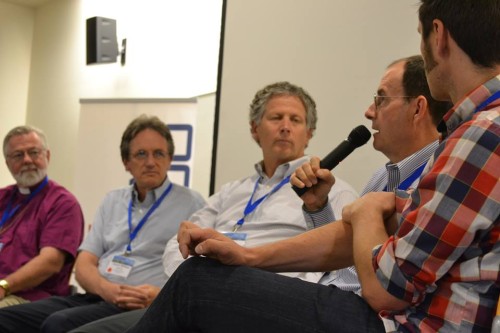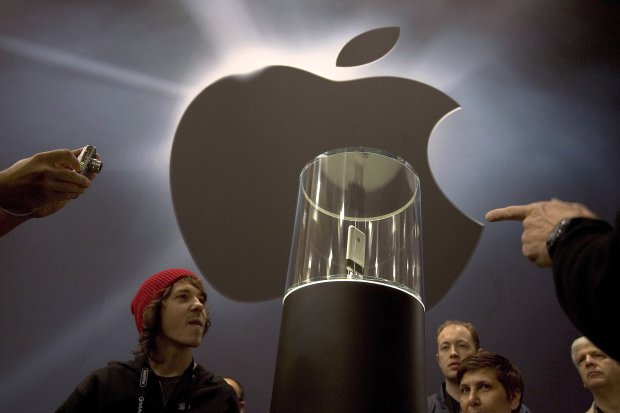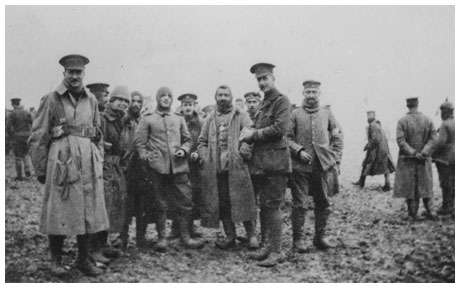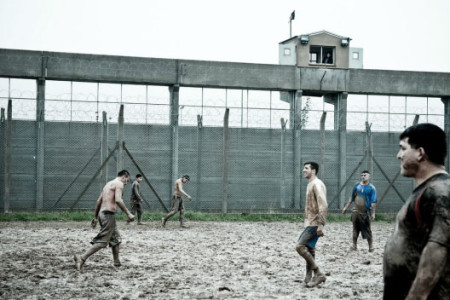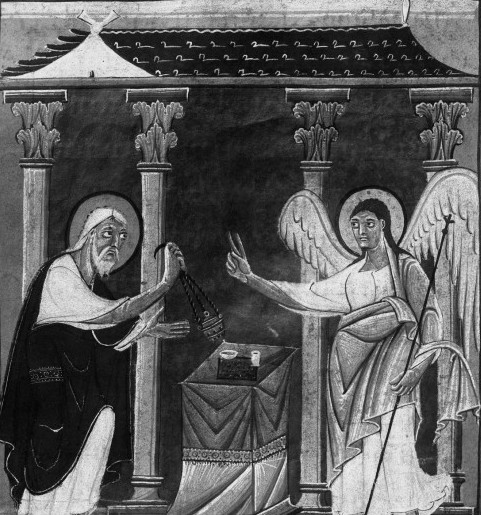People don’t sit still and neither do their beliefs. This, even while their creator, their God, both sits rock still, unmoving, unchanging and at the same time flits around like a hummingbird at the speed of light in his creation. We are like something between the two, but tremendously limited.
A systematic theology is more like a snapshot of someone’s current understanding, though it may reflect years of digestion and synthesis. In contrast, the autobiography is sometimes a better vehicle for understanding what a person believes and why. Being aware of the context of their lives brings many vague things into focus. Secularists like to do this to “demystify” faith. I say it is even more valid to use it to “humanize” that faith and bring it closer to the earth and those who dwell there.
David Miller recently posted this piece about his winding ecclesiastical journey from Reformed Presbyterianism, to Orthodoxy, to Anglicanism, and eventually back to the Reformed. Quite the ride. Hopefully his wife and kids weren’t rolling their eyes after switching church’s for the fourth time. Who knows. That’s probably none of my business. Still, I find Miller’s story interesting and I appreciate him outlining the journey and his reasons.
I am personally on a different journey and my reasons are yet again different. Since I find myself frequently having to explain myself to friends and family, I decided to take a stab at writing some of that story down here. This is not heavily footnoted or filled with scripture references. I could do that but it would take far longer to piece together and I don’t feel up to that tonight so it’s either write this shorter personal version or nothing at all at this hour. To other people on a similar journey (and I know a few of you personally out there!), this might help you to place where you are on the map or work through your own confusions.
The evangelical traditions I came from were very desperate to be cool. Usually they fell on their face. Sometimes they succeeded, at least for a few years. In the end though, despite the fact that it got some people in the doors following after something larger than themselves, I believe it ultimately served to obscure the gospel. Yet the gospel was still there. They have, at their core, remained faithful to biblical Trinitarian orthodoxy despite forgetting their history. Their awkwardness is my own awkwardness and so my journey never really leaves the realm of evangelicalism. However silly its people may be at times, Christ is there in their midst.
As liturgical churches in the United States lost their vibrancy and orthodoxy in the past century, the form has remained but everything else evaporated. This has led many Christians to be highly suspicious of the form. The contemporary evangelical Anglicans come back and say though, “Wait! The form is actually great. Just fill it with the spirit again. Bring Jesus back into the hearts of the people!” As those who for a while sped over the waves on a light jet boat but have since have been tossed on the ocean for decades with only a few scraps of driftwood to hold on to, a passing iron freighter looks like a dry and stable home. This big ship could be Roman Catholicism, or Orthodoxy, or whatever. It’s slow moving, but maybe that’s a good thing. Is it pointed toward the right destination? Jesus loves his church. He’s bringing all these boats in even if some of them seem to have their rudder stuck in a circle.
The Anglican way is to be faithful to the anglo-catholic liturgy that is 500+ years old – stick to your guns, and trust the holy spirit will do the rest. You don’t have to have a cool video montage. Just read lots of scripture out loud. Preaching is good – have good preaching – but that only goes so far so only have a moderate amount of that. Articulate the gospel but don’t make their head explode. We can give students that in a classroom setting elsewhere. God has promised to be with us everywhere, be he has especially promised to be present to us in a special way in the Eucharist, in the bread and wine. Take this part of the worship gathering seriously and make it the most important part. Again, God will do the rest. Don’t bother with greeters armed with walkie-talkies trying to scope out new families in the parking lot and have someone from the same demographic meet them at the door. We don’t need to busy ourselves with any of that stuff. Be faithful in worshiping the Triune God and other people will be drawn unto him. Don’t light candles during worship to be gimmicky. But it’s what our great-great-great-great-great-great-great-grandfathers did and it’s beautiful and subtle. Those are good enough reasons to still light them.
I considered sticking with the evangelical Baptists of my youth, but the heavy yoke of semi-Pelagianism (often preached unwittingly, not intentionally) was more than I could bear. In addition, the lack of beauty in art and music made me further despair. I could always see Jesus but he seemed so very far away.
In college I fell in with the Pentecostals. Jesus was large and right there in the room! It was exciting and the words in my bible came alive and exploded off the page every time I opened it. I read through the Gospel of John three straight times in one week during that first winter away from home. I swear I saw miracles – not least of all the miracle in my own prideful and elitist heart as it was made softer without the work of human hands. But then I found, after several years with my new friends, that God made me to be a quiet thinker. I streeeeeetched myself to fit the bombastic culture but found I could only stretch so far. Eventually as I matured from a young 17-year-old to a father of several children and nearly 30 myself, I found I no longer felt at home in that community anymore. It had stayed the same but I had changed. It was a nice place to pass through but I couldn’t find it in my imagination to make a permanent home their for the next sixty years. Some people could, but I couldn’t.
But where could one go? I am not an individual consumer and autonomous chooser of paths. I am formed by my history, by my genes, by my geography, by my wife, by the holy spirit. If I am honest with myself, I will acknowledge that I am constrained by many things.
I considered following the road to Reformed Presbyterianism. The theology is well considered and it is on my mother’s side after all. But I became too disheartened by the frequency of nasty debates amongst its cannon lawyers and the general allergy to the more mystic work of Christ. I also found little room in their midst for those who valued certain activities of the Holy Spirit. It’s not that there aren’t charismatics in these churches, it’s just that they have to stay in the closet. Though several close friends followed that path, I found I could only appreciate them from a distance.
I considered Orthodoxy for a time then. It has many corrective measures liturgically and theologically to the weaknesses of my past formation. I felt particularly excited at the theology of Christus Victor and the deep appreciation for beauty and mystery. But the cultural gap was just too large. The different branches of the Orthodox church are just too tied to ethnic identities – Greek, Russian, Ethiopian, etc. There isn’t any natural room for a rural-born North American. It would be a shoe-horn if ever there was one. Maybe this will be less of the case in 100 years as it gains more traction as a grass-roots movement in the West, but that is not the case today. It felt too disingenuous to try to join the Orthodox church. It’s not who I am. Tough. An intellectual assent will only take you so far. It doesn’t help that I had some friends go Orthodox and then go completely off the rails (though others seem fine today). I eventually found myself only a distant acquaintance.
Though I had come to appreciate certain aspects of Roman Catholicism, I never seriously considered swimming the Tiber. God bless them, but it’s not a movement I can get behind. In the end, I have to agree that the Reformation was ultimately a good thing and that my ecclesiastical allegiance lies elsewhere.
The Anabaptists have their strengths as well I have some other friends who followed that path and are seeing fruit from it in their lives and their communities. I found I couldn’t get tremendously excited about it though either. When it comes down to it, the news that Jesus work alone has utterly negated my guilt is the thing I need to hear the most. It’s the only thing that truly quiets my soul. It’s the only thing that allows me to hear “God loves you” without disbelieving it. And a tradition that emphasizes that grace-heavy Jesus, Jesus, Jesus soteriology in preaching and song and in regular conversations on the street – that is what turns my crank. It’s a key ingredient in the kind of church I can imagine living in. And, again, God bless them, but that sort of “Grace turned up to 11” attitude, I have only found (despite their other problems), with the reformed, with the Calvinists and their ilk. It’s not that it wasn’t there in the other traditions, just that it wasn’t in a form that resonated with me. I had difficulty hearing it due to my own particular scars. It’s not their fault really, but I am nevertheless drawn elsewhere.
So what does that leave me with? A tradition that has a relatively robust theology of grace when talking about the work of Christ – essentially reformed (small ‘r’). A tradition that isn’t too culturally distant – one that is largely English speaking but is not Euro-centric or U.S.-centric and wide enough to include significant swaths of Africa (which I cannot forget since traveling there). A tradition that appreciates and appropriates old things – old music, old beautiful art and doesn’t fall pray to the zeitgiest or to chronological snobbery. A tradition that values contextual expression and flexibility, but values order and consistency more. A sacramental tradition. The Anglican church foots the bill.
So why haven’t so many more evangelicals come to this conclusion? How come I get so many strange looks when I talk about this? The answer is simple. The expression of the Anglican church in the United States, the Episcopal Church of America, was completely taken over by liberal theologians about fifty years ago. They are now but an object of derision amongst evangelicals with their leading bishops both publicly denying the bodily resurrection and demanding that their lesbian sexual practice be legitimized in the public square. It’s like a bad joke. It’s no wonder that nobody has wanted to touch what remained of their worship form with a 10-foot or even 100-foot pole.
But then again C.S. Lewis was an Anglican and nearly everyone agrees he had his head on straighter than, well, just about anybody. Scholars like N.T. Wright have been putting out such excellent orthodox teaching over the past couple decades that even distant outsiders are starting to take notice. Influential seminary professors like Robert Webber (may he rest in peace) started digging around with their shovels and realized that the Anglican tradition has a thousand useful tools to help us on the giant task of reforming and (paradoxically sometimes) refreshing the evangelical church.
So I look back at all the traditions and I see a lot of useful tools for reforming and reenergizing, not just the western church in general, but especially in my own life, in my own family, with my own kids, with my own day-to-day prayer and faith and doubt, and even within the life of my friends and community. I look and I see lots of good, but within the Anglican tradition, I find the largest number of things I can pick up and use along with the fewest number of stumbling blocks. So that is why I’m here, walking down the road to Canterbury… or possibly Nairobi.
OK, “But what about them hurdles?” you may ask. Oh, they are there. I guess now is as good of time as ever to bring some of them out into the open. I’ve talked about some of the good, but what about the bad and the ugly?
The Bad:
Like all Christian traditions, contemporary conservative Anglicanism has it’s strengths and weaknesses. In the weakness department are, I think, a general difficulty and adverseness to being prophetic. That is my impression anyway and that of quite a few others. Anglicans can often be happy doing their own thing and not putting a lot of effort into reaching outwards. (It’s the same thing Roman Catholics in the west are not particularly good at in general, though there are exceptional pockets here and there.) They are not typically to be found preaching on street corners or making a lot of noise in the public square. They do send missionaries, but not near as many as the Baptists. There are evangelists within the church, but other groups like the Assemblies of God do a much better job of training and energizing these folks. When the evils of the current age or the corruptness of politicians needs addressing, you are more likely to find a hot Reformed Christian writing or talking loud and articulate about it. The Anglicans are soft-spoken and that can be a good thing, but not when it’s time to fight, and sometimes it IS time to fight.
The Ugly:
Ecclesiastical infighting amongst bishops with big egos is real and occasionally nasty. When Presbyterians fight, they set up courts and denounce each other as formally as possible with hundreds of confessional footnotes. When Charismatics fight, it is couched in highly spiritual language about one person or another “quenching the spirit”, with an ugly church split described as a “new move of God”. When evangelical Anglicans fight, it’s somewhere in the middle between these two things. So you get some of both kinds of “bleh”. The insults hurled at Nigerian leaders (who are flush with people, but dirt poor) by the last remaining Episcopalians (who are flush with cash and property but with dying congregations) will make you want to hurl. Don’t look it up. The Anglican Church in North America has been mostly successful in uniting and absorbing many of the conservative movements throughout the U.S. and Canada – but not entirely so. There have still been some messy fights and huffy resignations that seriously derailed the work of some local congregations and, at best, was a discouraging distraction. Though debates about sexual ethics, soteriology, and biblical orthodoxy are (thankfully) pretty well settled at this point, the limitations of women’s ordination looms ahead. Expect a few more nasty exoduses (one way or the other) over this one in the following decade. Sigh.
So there you go. My journey is something like Conservative Baptist –> 3rd Wave Charismatic –> Post-evangelical wilderness –> Anglicanized evangelical. Whether I have the opportunity to serve or worship in a formally Anglican church is maybe not so important. There is no such congregation in the vicinity – for the time being, I want to stay where I am at and serve the best I can. That could be for quite a while, especially since my wife and I are trying to stay put for a while to give the kids a lot of stability. I would rather see them formed by the observation of friendship and steadfastness in our lives than by the quest for increasingly exact and accurate theology or practice. None of these places I’ve passed through on my journey to understanding and worshipping Jesus has been a fixed point to be abandoned. They are all still living inside of me – my parents, the people that loved me, the ones that taught and chastised me, and the people that let me down too. I let my share of them down. But the Lord is faithful and I desire to keep my eyes on him as I walk.



